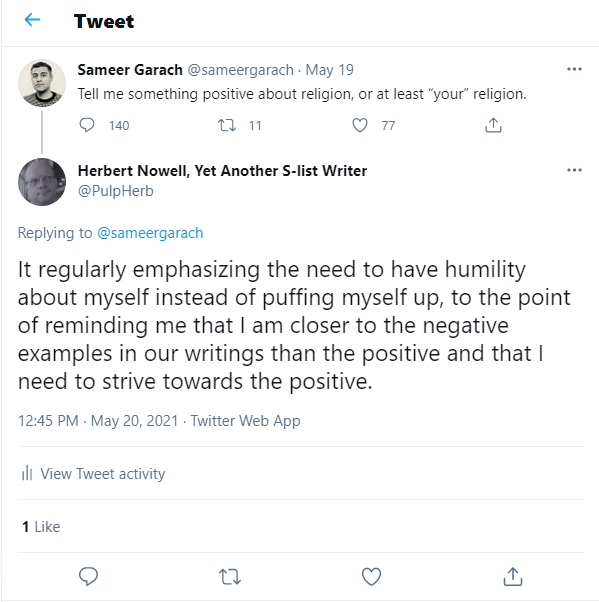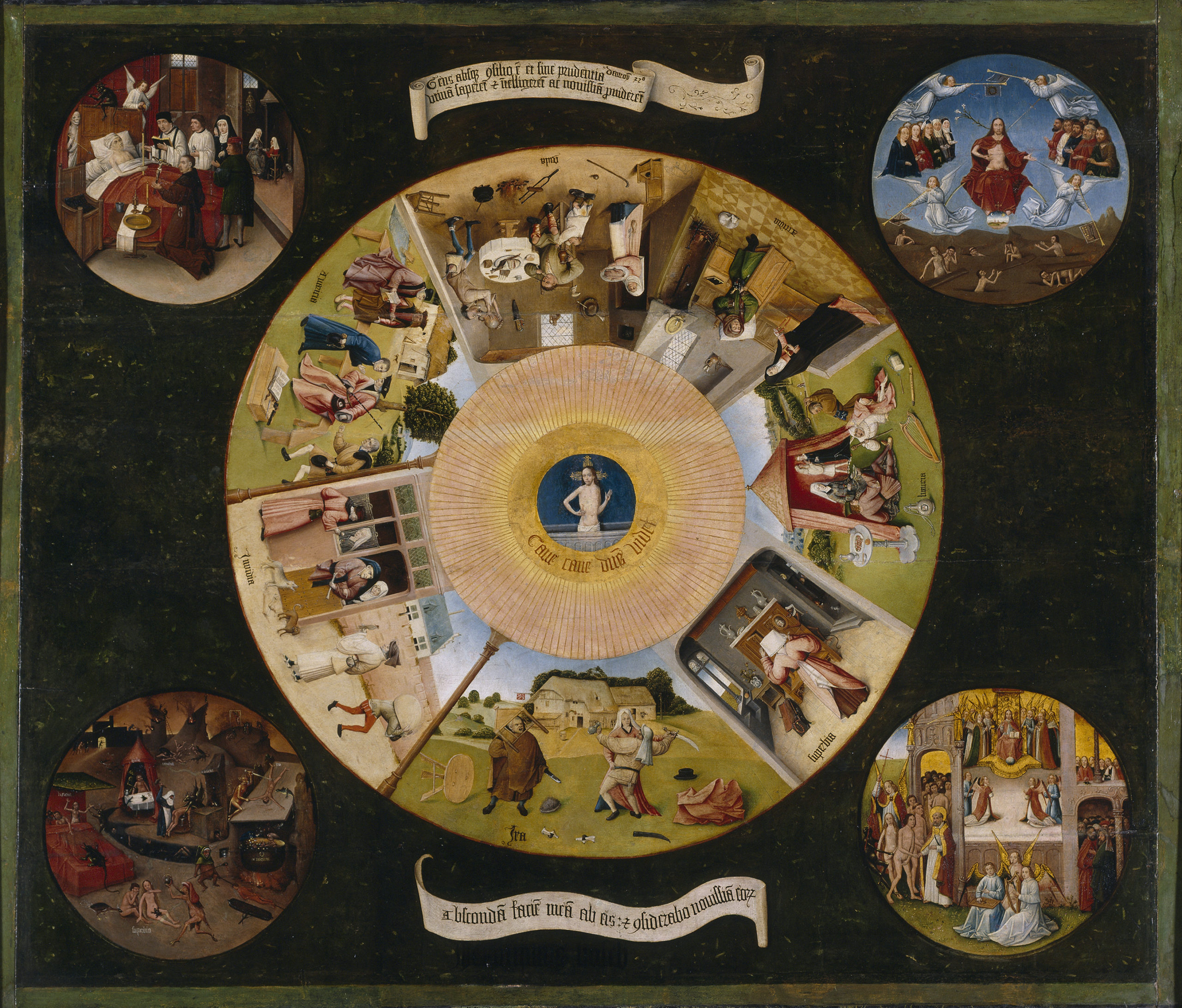Sometimes life conspires to give you something to talk about. Earlier this week, I had the exchange below on Twitter. Beyond Mr. Garach liking the tweet, that is the entirety of the conversation.

Today’s “Morning Offering by Abbot Tryphon” addresses the same subject. It also provided me with the title of this post. As Abbot Tryphon notes, the phrase is from 1 Timothy 1:15. It is also in the Divine Liturgy as a prayer before receiving Holy Communion.
This is a faithful saying, and worthy of all acceptation, that Christ Jesus came into the world to save sinners; of whom I am chief.
1 Timothy 1:15
I will not claim this is my favorite part of the Divine Liturgy. The Second Antiphon, specifically The Refrain of the Second Antiphon. It is, however, one of two which strike me the most. I was dumbfounded the first time I heard a priest say it. As someone with a mixed Presbyterian and Baptist upbringing, this seemed very out of place. Normal behavior was holding officials of the Church as icons of the Christian life. For a priest to admit, he is a sinner no different someone transgressed against God with intent was strange. To claim he was chief among sinners was beyond belief.
Yet, I think one of the key waypoints on the journey that is Christianity is realizing you are the Chief of Sinners. How can this be so, you might wonder. Certainly, Mao or Gengis Khan, men roughly tied for the greatest mass murder in history, come before a boring, middle-aged man in the pews. Plus, do we know that mass murder is the greatest sinning done by man?
Yet, with conviction and sadness, I recite that line before those who can receive Holy Communion do.
There are two ways to explain this truth. The first explanation is logical. God is infinite in his wisdom and goodness, while all men are finite. Perhaps we could determine some absolute objective measure of sin committed by men. We could then compare ourselves against others, perhaps not entirely, as there is no assurance this measure would form a mathematical chain, but at least against some others.
Yet, if we assigned those values to the negative side of the number line, then God is at the infinite positive end. What is the difference between -1 and positive infinity? It is an undefined, endless difference. What is the distance for -1,000,000 and positive infinity? It is the same. Thus, we have all fallen an infinite distance from the Glory of God.
Let that would leave us all equal in sin, not ourselves as the Chief Sinner.
That is why the second way of understanding that verse is needed, a personal, emotional way.
What is the worst thing you’ve ever done? What is the second-worst thing? Right now, think of the top ten worst things you’ve ever done. Now, remember there are things you forgot that might belong on that list. How does that feel inside you, deep in your gut? Even if you are not religious, even if you are an out and out atheist, that is not a comfortable thought process; it is one we shy away from.
Now think about the Holocaust or the slaughter of the Native Americans or whatever your favorite historical atrocity to cite is.
How’s your gut? It’s probably fine.
That is why everyone can say with honesty, “Sinners, of whom I am chief.” We know our crimes. We shy away from them. We know what we deserve because of them.
A couple of days ago, I wrote about judgment. I said we cannot wholly sacrifice judgment and still function in the world. I noted the injunction of Matthew 7:1-6 was one of mercy. Above when you thought of your favorite atrocity, was it easy to judge? Did you wish to bring the full weight of justice upon those who committed it? Did you think there so be no compansion for them in that judgment?
Now take that fierceness of judgment, hold it bright and burning in your left hand. Now into your right hand, pour out those ten worst things you’ve done. Take that burning judgment in your left hand and illuminate your right hand with it.
In that light, you will find the conviction and sadness I feel on Sundays when I confess my belief that Jesus Christ came among men to save sinners.
Of whom I am Chief.


Be First to Comment